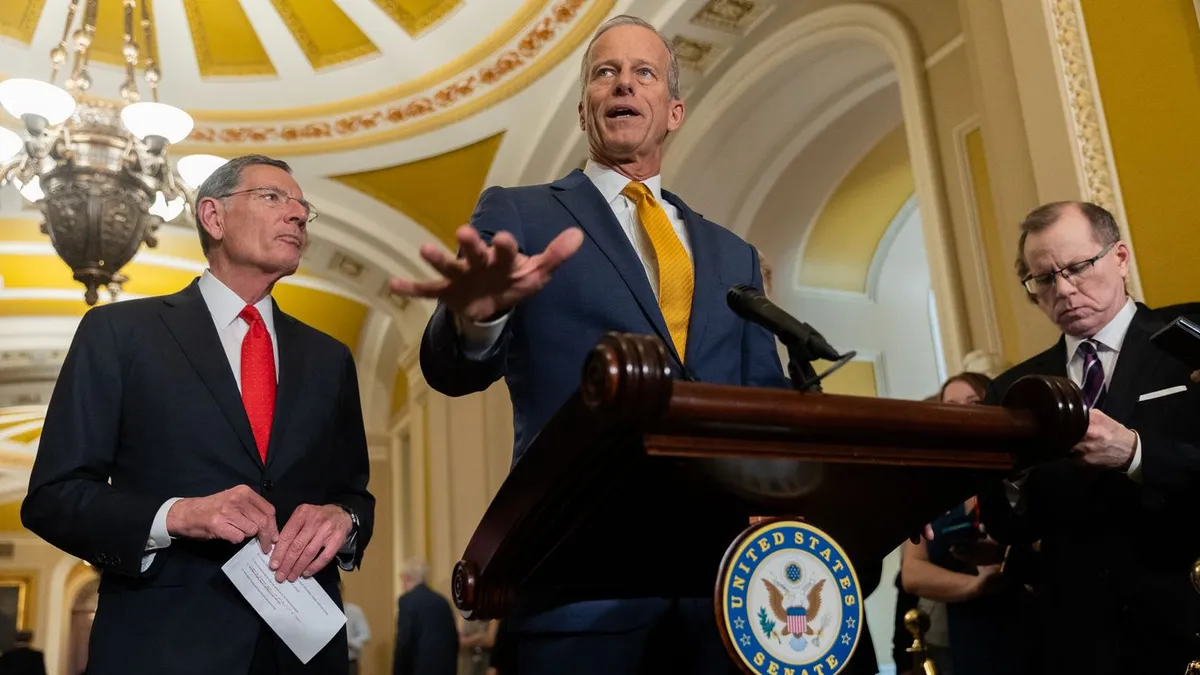
In a significant political maneuver, Senate GOP leaders have successfully managed to protect the tariffs imposed during Trump's presidency. This move has sparked considerable debate across various political platforms as lawmakers grapple with the implications of such tariffs on the economy.
Despite attempts to challenge the existing tariffs, the Senate recently rejected a bill aimed at limiting Trump’s tariff policies. This decision came amidst ongoing discussions regarding the impact of these tariffs on American businesses and consumers. The rejection of the bill underscores the Republican Party's commitment to maintaining Trump's economic strategies, even as the economy shows signs of contraction.
In a dramatic turn of events, Vice President Vance cast the tie-breaking vote that ultimately led to the defeat of the bill intended to block Trump’s tariffs. This pivotal moment highlights the increasing polarization within the Senate and the lengths to which party leaders will go to uphold their economic policies.
The ongoing debate over Trump's tariffs raises critical questions about their long-term impact on the U.S. economy. While supporters argue that these tariffs are necessary for protecting American jobs and industries, critics warn that they could lead to increased prices for consumers and strained international relations. The Senate's rejection of measures to rein in these tariffs reflects a broader strategy to maintain a hardline stance on trade issues.
In related news, the U.S. has recently signed a deal concerning Ukraine's minerals, further complicating the landscape of international trade and tariffs. As the Senate grapples with these economic policies, the global community watches closely to assess how these developments may affect trade relations and economic stability.
The Senate's recent actions regarding Trump’s tariffs underscore a pivotal moment in U.S. economic policy. With Republican leaders unyielding in their support, the future of these tariffs remains uncertain, drawing attention from both domestic and international observers. As the discussions continue, the potential repercussions for the U.S. economy and trade relationships will be crucial to monitor.